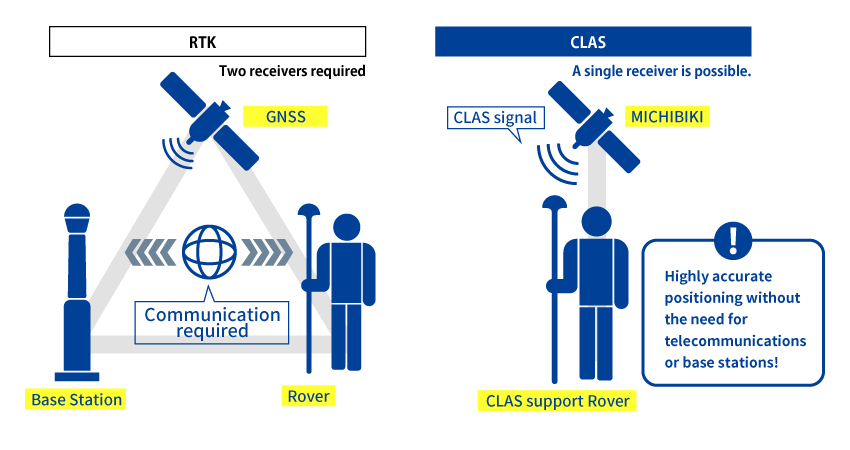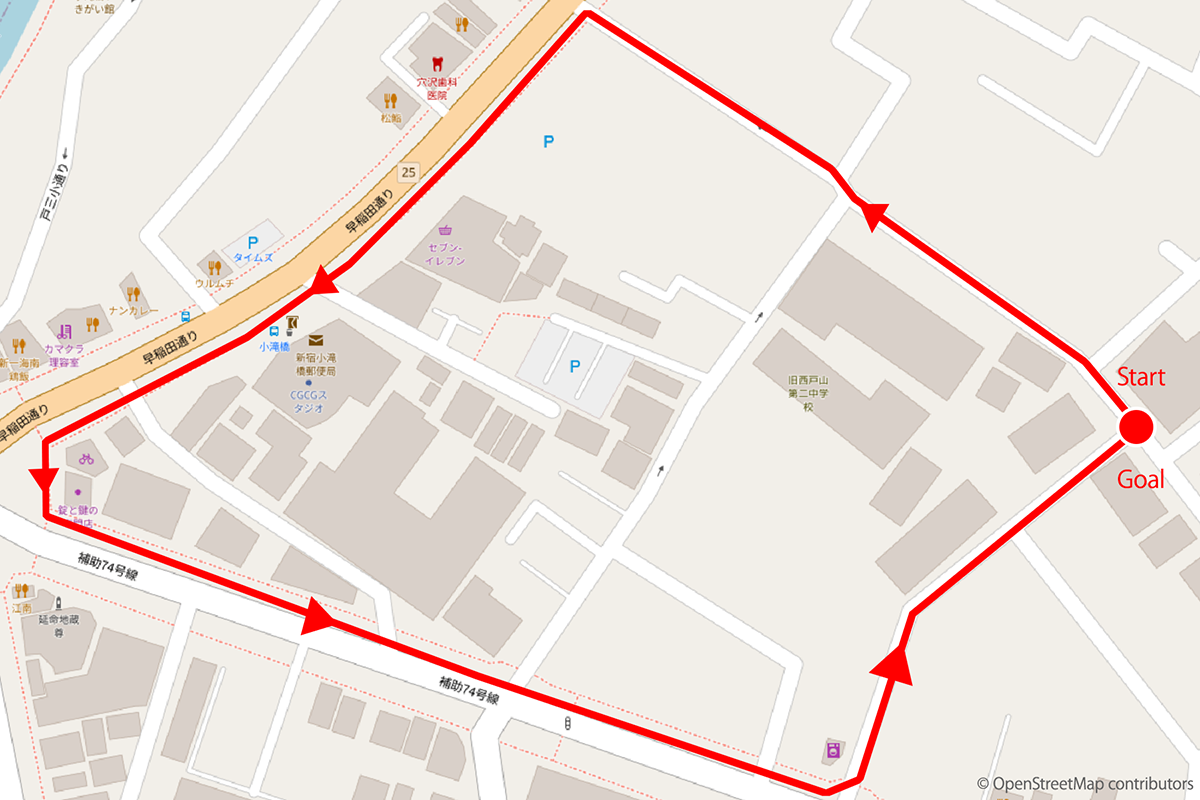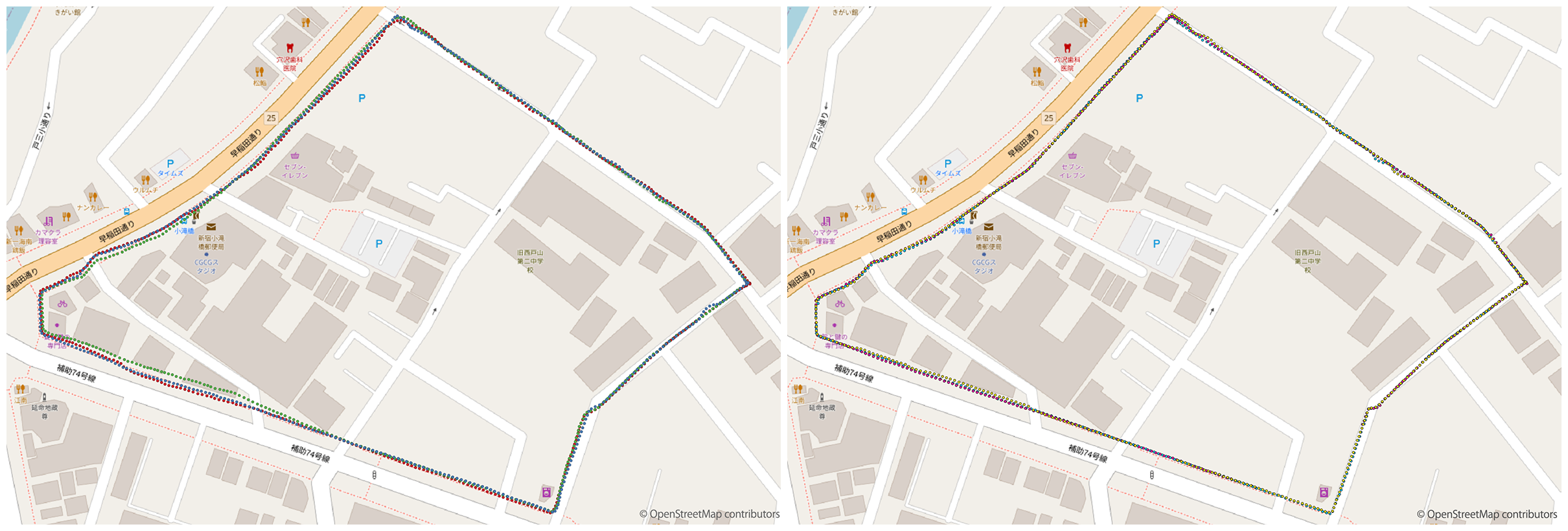Comparison of CLAS and RTK

Introduction
In the previous article, we gave an overview of CLAS and then briefly compared it to RTK.
This time, we will compare CLAS and RTK in more detail.
First, we will compare the accuracy of CLAS and RTK and consider the advantages and disadvantages of CLAS compared to RTK.
Accuracy comparison between CLAS and RTK
| Positioning Method | Approximate Accuracy (Horizontal) | Approximate accuracy (vertical) | Time to first high accuracy position |
|---|---|---|---|
| RTK | 2cm | 4cm | Almost instantaneous |
| CLAS | 6cm | 12cm | Less than 1 minute |
Comparison of CLAS and RTK on a map
We walked through the same part of the road around our company (Takadanobaba, Shinjuku-ku, Tokyo) as much as possible and circled the area three times.
The acquired location information was plotted on a map.
Advantages and disadvantages of CLAS compared to RTK
Advantages of CLAS
- Correction signals can be obtained simply by receiving MICHIBIKI satellite signals
- No need to prepare a reference station
- No need for other communications to acquire correction data
Disadvantages of CLAS
- Slightly less accurate than RTK
- Positioning accuracy is lower (RTK float level) at certain times of the day
- Takes time to determine initial position
- Available only in Japan
Where does CLAS excel?
Where can CLAS take advantage of its ability to obtain centimeter-accurate location information simply by receiving satellite signals?
- Applications such as wearable terminals where the trajectory of a moving object, including a person, can be processed in absolute position.
- Battery-operated terminals, such as tags attached to logistics, that intermittently acquire location information to conserve power and only turn on communication to transmit absolute location when moving.
This is one example of a possible application.
There may be other areas where high-precision location information can be used, but we are not aware of them.
In Closing
If you would like more detailed information or have any questions, we can hold a separate CLAS seminar.
Please contact us from our contact page.
Reference page: Prof. Nobuaki Kubo, Tokyo University of Marine Science and Technology,
"Current Status and Future of MICHIBIKI's Positioning Augmentation Signals" [PDF].
Our Products
iChidori® is an IoT-compatible centimeter-class location information service using GNSS (Global Navigation Satellite System) developed by our company. Please click here for a detailed introduction of the device. here



